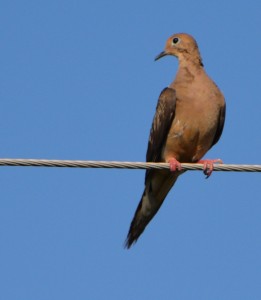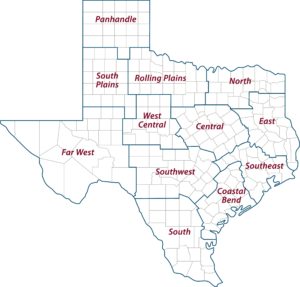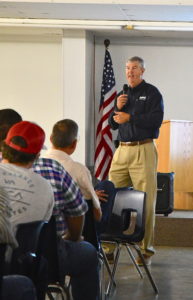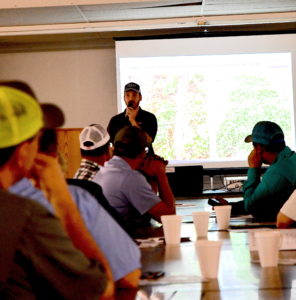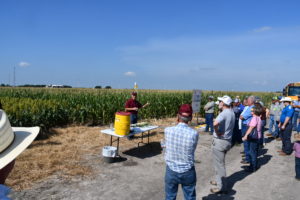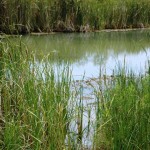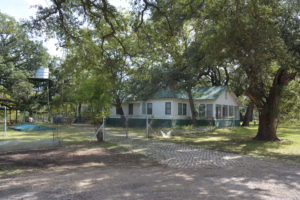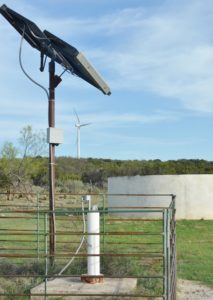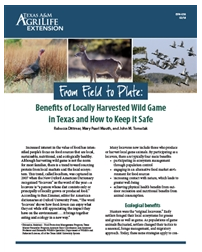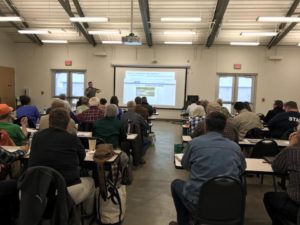Writer: Steve Byrns, 325-653-4576, s-byrns@tamu.edu
Contact: Josh Blanek, 325-659-6523, j-blanek@tamu.edu
SAN ANGELO – The Texas A&M AgriLife Extension Service will conduct the Concho Valley Wild Pig Management Workshop on Sept. 12 at the Texas A&M AgriLife Research and Extension Center at San Angelo.
The center is located north of town on U.S. Highway 87. The free multi-county workshop opens at 8:30 a.m. with registration, followed by the program from 9 a.m.–2:30 p.m.
The AgriLife Extension counties involved with the event are Tom Green, Irion, Sterling, Coke, Runnels, Concho and Schleicher.
This event is provided through a Clean Water Act Section 319(h) nonpoint source grant from the Texas State Soil and Water Conservation Board and the U.S. Environmental Protection Agency.
Lunch will be provided courtesy of the Coke County Livestock and Wildlife Protection Association and the Sterling Wildlife Conservation Association.
RSVP before Sept. 7 to any of the participating AgriLife Extension offices. More information is available there or by contacting Josh Blanek, AgriLife Extension agent in Tom Green County, at 325-659-6523, j-blanek@tamu.edu .
Four general Texas Department of Agriculture continuing education units will be offered.
“The old axiom about two kinds of landowners — those with feral hogs and those who are about to — sure rings true in our area,” Blanek said. “We’ve seen a huge influx of the pests here in recent years, which is the reason we are having this workshop and involving so many counties.
“Our goal is to bring landowners, managers and really, anyone facing the influx, abreast of the situation and what can be done to manage it.”
Topics and speakers will include:
-Wild Pig Biology, Impacts and Control, Josh Helcel, AgriLife Extension associate with Texas A&M Natural Resources Institute, Burnet. Helcel will discuss the biology and impact feral hogs have on the environment and discuss control options including trapping and exclusion fencing.
-Wild Pig Safety and Disease Concerns, Dr. Pete Fincher, veterinarian, Texas Animal Health Commission, Region 6 director, Lampasas. Fincher will discuss health concerns for humans, livestock and wildlife, to include the hunting, handling and processing of feral swine.
-Development of an Oral Toxicant for Wild Pigs, Dr. John Tomecek, AgriLife Extension wildlife specialist, Thrall. Tomecek will speak on new developments and projected uses of oral agents for wild pig control once they become available, including their proper use and rules and regulations.
-Wild Pig Trapping and Snaring Demonstration, Doug Steen, Texas Wildlife Services district supervisor, San Angelo. Steen, along with Helcel and Tomecek, will talk about and show different methods to control wild pigs through the proper use of baits, traps and snares.
-30-
